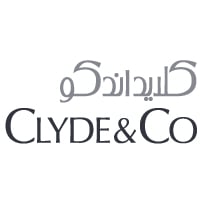

General Counsel | Industrialization and Energy Services Company (TAQA)



Ladislav Zahumensky
General Counsel | Industrialization and Energy Services Company (TAQA)
Career Biography
Ladislav Zahumensky is the General Counsel of the TAQA group. As the head of the legal team, Zahumensky is responsible for strategic legal advice to the board and senior management of TAQA and management of legal matters across the entire TAQA group, leading a team of lawyers providing support on all aspects of the group’s business.
Since joining TAQA in 2018, Zahumensky has had legal oversight of all key transactions implementing TAQA’s transformation from a holding into an operating company and supporting its growth ambitions, particularly focusing on corporate planning, M&A transactions, strategic divestments, and R&D partnerships.
During his 15+ years of legal experience, Zahumensky was also a senior legal counsel at Emaar, The Economic City (the master developer of King Abdullah Economic City in the Kingdom of Saudi Arabia) and worked at leading law firms. Ladislav is a graduate of Columbia Law School, and an attorney/counsellor-at-law admitted to practice in New York State.
What are the most significant cases and/or transactions that you have been involved in over the past year?
Following the 2023 major acquisition in the oilfield services and equipment domain (which was recognised as the M&A deal of the year 2023 at the Capital Markets & ESG Finance Saudi Arabia awards), the legal function continued to support the company’s core business as well as expansion beyond oil and gas.
The company completed the acquisition of a 49% stake in Arabian Geophysical and Surveying Company (ARGAS) from our long-standing joint venture partner CGG, thus taking full ownership and control of ARGAS. ARGAS was one of the foundational subsidiaries of the company and was a joint venture since its inception in 1966. ARGAS is now the oldest continuously operating geoscience data acquisition company in the world and our acquisition is intended to support its expansion into mining and other professional and technical services.
Another venture outside of oil & gas was the activation of our geothermal business. After a joint venture had been established with our technical partner in 2023, first geothermal projects were implemented, both on the engineering/advisory side and drilling of geothermal wells, and the group’s geothermal arm is expanding in Europe with the award of a major integrated geothermal drilling project.
Closer to the core of existing group business, the company has positioned itself as the leader in the deployment of pilot/early production facilities for oil and gas in the GCC, after being awarded a number of major EPF projects in the region. Clients are keen to appraise reservoir performance and bring reservoirs to early production, and we support them on a turn-key basis.
What innovations have you made to the way your legal team works in the past year?
Similarly to other legal departments and in line with the general trend, we continue to implement digital and automation tools into our work to improve our efficiency (by eliminating manual processes) and enhance user experience and interaction with our “internal” clients.
In line with internal digitisation initiatives, we have rolled out digital libraries of key data to be available within the entire organisation on a need-to-know basis. Our group operates in North America, UK, Europe, Middle East, North Africa, South Asia and APAC. Various stakeholders require up-to-date information about various facts and events (such as constitutional documents, licenses, status of open disputes, etc.). Providing uninterrupted, around-the-clock, digital access to up-to-date legal information has eliminated several previously manual processes and enhanced operational efficiency of both our internal clients and the legal function, as well as increased internal awareness to legal issues.
The team began to test digital and AI-powered tools, mainly for legal research, contract review and data analysis. Our legal department still runs on human intelligence, but AI tools are allowing us to use human intelligence more effectively. We continue to work on implementing digital tools to assist with (or even eliminate) certain highly repetitive, monotonous and error-prone activities, so that the team can focus more on tasks that really cannot do without human input. We also see that these tools can be helpful not only from a workload management and efficiency perspective but also keep lawyers from the younger generation more engaged in work.
Based on your experience, what is the key to collaborating successfully with business partners?
There are two principles for our internal lawyer-client interaction which I would like to highlight:
First, understanding our business partners in all “tenses”, past, present and future. When thinking about how to approach anything we do for the company, we make sure to understand all of the relevant history and non-legal subject matter (which will explain where the client is coming from, how and why the matter arose), the present situation (where is our client now, what does he believe to be in need of), and the future (where does our client want to be, what do we foresee on the way to that destination).
The other principle, which goes hand in hand with the first one, is to use the client’s language in our communications. Talking with all our clients in their jargon helps us get to the bottom of things as well as explain our work to them. It is our job to do the “translation”.
Our internal clients are always more open and engaged when we discuss matters from their perspective and in their own language. Having a prior techno-commercial insight into the matter and speaking the client’s language eliminates the room for misunderstandings and puts us in the role of a trusted advisor and business partner (and not “just a lawyer”), which in turn leads to appropriate legal solutions which have the clients’ buy-in.
What do you think are the key things to remember to motivate and manage the other members of your legal team?
Positive motivation is found when the team is empowered and assumes responsibility, based on ambition, subject matter expertise, and seniority, in combination with just the right amount of guidance, support and oversight. While the general counsel bears overarching accountability for the performance of the legal function, micromanagement of the legal team is neither feasible nor desirable. There is a fine balancing act between the subject matter expertise of the general counsel and the legal team. When managing a legal function with broad subject and geographical coverage, general counsel spends considerable time acting as the leader who can dynamically balance his/her direct involvement with empowerment of the team.